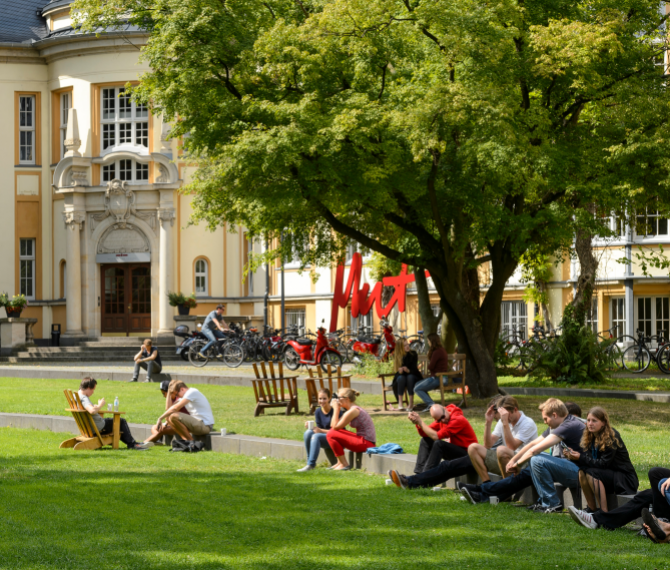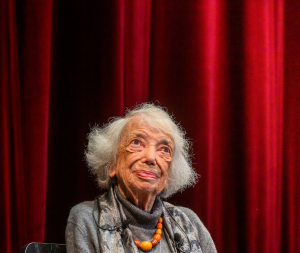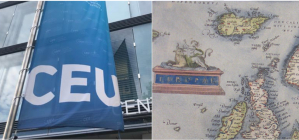
How we fund
Find out here which projects and initiatives we support and how to apply for funding.
Read more
Bucerius Law School: Setting an example

Bucerius Law School in Hamburg is Germany’s first foundation-endowed law school and aims to modernize legal education.
As a pioneering institution, Bucerius Law School boldly breaks new ground in teaching and research and provides a international perspective while also championing diversity and community spirit.
Scholarships and an innovative fee system make the law school accessible to all talented applicants, regardless of their financial situation.
As a pioneering institution, Bucerius Law School boldly breaks new ground in teaching and research and provides a international perspective while also championing diversity and community spirit.
Scholarships and an innovative fee system make the law school accessible to all talented applicants, regardless of their financial situation.
Read more
Exhibition: In Her Hands.
Women sculptors of surrealism
01.02.2025 — 01.06.2025
Women sculptors of surrealism
01.02.2025 — 01.06.2025

Bucerius Kunst Forum

ZEIT STIFTUNG BUCERIUS Scholarships for Performing Arts
Political instability, economic challenges, and the rapidly developing digital world: Present times are marked by uncertainty. All of this makes the ability to cope with uncertainty an essential creative resource. We thus finds it appropriate to continue our scholarship program for the performing arts and to encourage and foster projects, conceptual work, artistic research, and investigations which creatively address the topic of ‘uncertainty’.

How we fund
Find out here which projects and initiatives we support and how to apply for funding.
Read more
Bucerius Law School: Setting an example

Bucerius Law School in Hamburg is Germany’s first foundation-endowed law school and aims to modernize legal education.
As a pioneering institution, Bucerius Law School boldly breaks new ground in teaching and research and provides a international perspective while also championing diversity and community spirit.
Scholarships and an innovative fee system make the law school accessible to all talented applicants, regardless of their financial situation.
As a pioneering institution, Bucerius Law School boldly breaks new ground in teaching and research and provides a international perspective while also championing diversity and community spirit.
Scholarships and an innovative fee system make the law school accessible to all talented applicants, regardless of their financial situation.
Read more
Exhibition: In Her Hands.
Women sculptors of surrealism
01.02.2025 — 01.06.2025
Women sculptors of surrealism
01.02.2025 — 01.06.2025

Bucerius Kunst Forum












